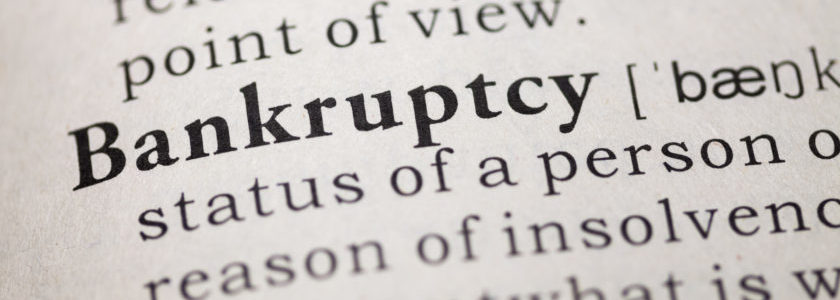
If you are buried under a mountain of debt and your phone is ringing constantly with harassing calls from creditors and debt collectors, it may be time to consider filing for bankruptcy. Bankruptcy exists to help you regain control of your life without being weighed down by the nasty side effects of debt, including wage garnishment, mounting late fees, interest charges and unpleasant phone calls and letters. There are two major types of consumer bankruptcy filings: Chapter 7 and Chapter 13. It is important to note, however, that you don’t necessarily have a choice between the two. Ohio Chapter 7 bankruptcy income limits will determine if you are eligible to file under Chapter 7.
Chapter 7 vs Chapter 13 Bankruptcy
Chapter 7 is liquidation based. This means unsecured debts are wiped away after you sell all non-exempt assets to pay back creditors. In many cases, most if not all your assets will be exempt from liquidation, which means you can keep those assets. Secured debts are unlikely to be discharged in Chapter 7.
Chapter 13 is repayment based. This means a five-year payment plan is put in place. At the end of the payment plan your remaining unsecured debts will be discharged. You you will still have to pay the collateral value of your secured debts.
It may seem like Chapter 7 bankruptcy is the best and most obvious choice. But there are measures in place to ensure that only people who truly need Chapter 7 debt relief can obtain it. To qualify, your income must be under the Ohio Chapter 7 bankruptcy income limit for Ohio. If your income is too high, then you must pass the Ohio Chapter 7 means test, which calculates whether you have enough disposable income to pay back some of your unsecured debts.
The Means Test and Ohio Median Income Limits
Your eligibility for Chapter 7 bankruptcy in Ohio is dictated by how your annual household income compares to the median household income for a household of the same size. While we are going to use numbers determined after November 1st, 2018, you can find the exact numbers for your time period at the U.S. Trustee Program website.
The median income for a single earner is $48,441, a two-person household is $60,822, a three-person household is $73,182, and a four-person household is $87,321. Every additional person in a household beyond four adds an additional $8,400 to the total. Your annual income is determined by adding your average monthly income over the past six months and then dividing the total by six. If the result is less than the median income, you automatically qualify for Chapter 7.
If your income is more than the median, you don’t need to give up. You just have to use the means test. The court is concerned that because your income is high enough, you may be able to pay back some of your debts. In order to display that you need to file for Chapter 7, you must prove that your disposable income is not high enough to satisfy a repayment plan under Chapter 13.
Means Test and Disposable Income
The means test requires you to calculate your income and expense information. Income includes almost all sources of income you have, including business income, interest and dividends, pensions and retirement plans, household expenses paid by others, alimony and child support, worker’s compensation and unemployment income, amongst others.
Allowable expenses are subtracted from your average monthly income. These expenses are based on national standard of living, car ownership and out of pocket health care costs, as well as local standards for housing and transportation. These expenses are derived from information supplied by the Census Bureau and the Internal Revenue Service.
If your total monthly income over the course of the next 60 months is less than $7,475 then you pass the means test and may file for Chapter 7. If you are over $12,475 then you do not pass the means test and must instead consider Chapter 13 bankruptcy for debt relief. If you fall in between these two values you must do additional calculations to determine if you have enough income to pay 25% of your unsecured debts over the next five years. If you don’t, you qualify for Chapter 7. If you do, Chapter 13 is your only option. In addition, the court after examining the totality of your circumstances, may decide you qualify for Chapter 7. All calculations aside, if you demonstrate a need for Chapter 7 due to events like a serious family or medical matter, the court may allow you to file Chapter 7.
Ohio Means Test Exemptions
In some instances, you do not have to pass the means test to pursue Chapter 7 bankruptcy. These include situations in which the debt in not consumer debt like credit card or medical debt. You also are exempt if you are a disabled veteran and incurred your debt while on active duty or during a homeland defense operation.
Find Out if Bankruptcy Is Right for You
Sorting all the information about Ohio bankruptcy income limits, expenses and whether you qualify for Chapter 7 or must utilize Chapter 13 can be confusing. That’s why DannLaw is here to help you determine the best course of action for your situation. Contact us today for a free case evaluation so we can find the right solution to your debt problems.